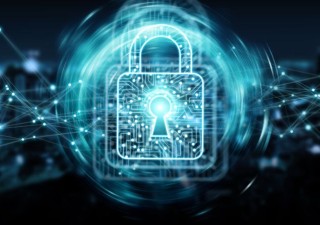Incremental Pharmaceutical Inventions and Section 3(d)
20 December 2012

Section 3(d) of the Indian Patents Act has been drawing considerable media coverage, especially after the outcome of the Novartis case, which was adjudicated by the Chennai High Court and Intellectual Property Appellate Board. Prior to 2005, the Indian patent system was essentially a process patent regime, which facilitated the growth of the generic pharmaceutical sector in India. India enacted amendments in its Patents Act in 2005 to meet its TRIPS Agreement obligations, making India’s a product patent-based system. The legislature provided certain safeguards to prevent malpractices including ‘evergreening.’
Section 3(d) of the Indian Patents Act was enacted to act as a filter to curb such malpractices adopted by some pharmaceutical companies. More specifically, Section 3(d) of the Indian Patents Act stipulates that a new form of a known substance, which does not result in enhancement of known efficacy, is not patentable. It further elaborates in the explanation that derivatives, salts, esters, polymorphs, etc., would be considered to be the same substance unless they differ significantly in properties with regard to efficacy.
The explanation below Section 3(d) appears to be worded based on Article 10(2)(b) of Directive 2004/27/EC of the European Union, which in the context of drug marketing approval stipulates that “the different salts, esters, ethers, isomers, mixtures of isomers, complexes or derivatives of an active substance shall be considered to be the same active substance, unless they differ significantly in proportion with regard to safety and/or efficiency.” However, the words safety and/or efficiency are replaced by efficacy.
In essence, Section 3(d) provides that only those pharmaceutical derivatives that demonstrate significantly enhanced “efficacy” are patentable. Section 3(d) draws a line between evergreening and incremental innovation. It provides a balance by rewarding the inventor with patent protection for innovations which display enhancement of the known efficacy but at the same time disallows any frivolous invention with minor increment made in an attempt to evergreen a patent.
Article 8.2 of the TRIPS Agreement imparts enough freedom to member states to take measures to prevent the abuse of intellectual property rights by right holders. Thus it would be wrong to state that Section 3(d) is not compliant with TRIPS. Section 3(d) only represents a heightened inventive step requirement.
In April 2005, the Government of India appointed a technical expert group on patent law issues, popularly known as the Dr Mashelkar Committee, to recommend whether it would be TRIPS compliant to limit patents for pharmaceutical substances to new chemical entities. The committee in its report concluded that it would not be TRIPS compliant to limit the grant of patents to NCE alone. One of the key observations made by the committee was that “every effort should be made to prevent the grant of frivolous patents and evergreening.” The report also made a distinction between evergreening and incremental innovation. It further says that “incremental innovations involving new forms, analogs, etc. but which have significantly better safety and efficacy standards, need to be encouraged.” It also says that incremental innovations are the sequential developments of the original patented product and that such incremental developments must be encouraged by the Indian Patent Regime.
However, if efficacy is restricted to ‘therapeutic’ efficacy as defined in a recent ruling by Madras High Court, then categories of inventions such as new drug delivery mechanisms, in which many Indian companies excel, will fall out of the scope of protection. Thus an extremely restrictive interpretation would be detrimental to the interests of entire pharmaceutical industry, whereas an expansion in the scope of this section keeping in view the interests of Indian research and development companies will fuel innovation and benefit the users with more value added products at affordable costs.
Prior to the above ruling, in absence of clear guidelines as to the definition of efficacy, a number of pharmaceutical product patents were granted subjectively by Indian Patent Office. All such patents are now clearly liable to be revoked if challenged by any interested party. Some of the commercially valuable patents have already been opposed. A few representative cases are discussed below to illustrate Section 3(d).
Hyderabad, India-based Glochem Industries filed a pre-grant opposition against Cadila’s patent application 413/MUM/2003A for Clopidogrel Besylate alleging misconstruction and misapplication of law. The Patent Office, however, granted the patent. Glochem Industries filed a writ petition in Bombay High Court challenging the Controller’s order. The Court noted that the Assistant Controller did not correctly apply the interpretation of efficacy laid down by the Madras High Court while granting the patent and the factors such as less toxicity and increased stability and shelf life do not lead to enhancement of known therapeutic efficacy. The Court set aside the order of the Controller regarding grant of the patent and directed the Controller to consider the arguments of the Petitioner afresh.
The Indian Patent Office recently uploaded a list of 3,488 pharmaceutical product patents it has granted in the past four years. A good proportion of granted patents are for incremental inventions. It would be a good strategy for the multinational pharmaceutical giants to use the R&D skills available in the country to develop new chemical entities and incremental innovations for locally relevant indications, thereby saving development costs. As Indian R&D capacity grows sufficiently in size and brings out a significantly large number of innovative products, the legislature may be quite willing to further amend the Patent law to facilitate its growth.
Lall Lahiri & Salhotra
LLS House, Plot No. B-28,
Sector - 32, Institutional Area,
Gurgaon - 122001, National Capital
Region, India
T: +91 124 2382202, 2382203
F: +91 124 4036823, 2384898
E: Rahul@lls.in
W: www.lls.in






